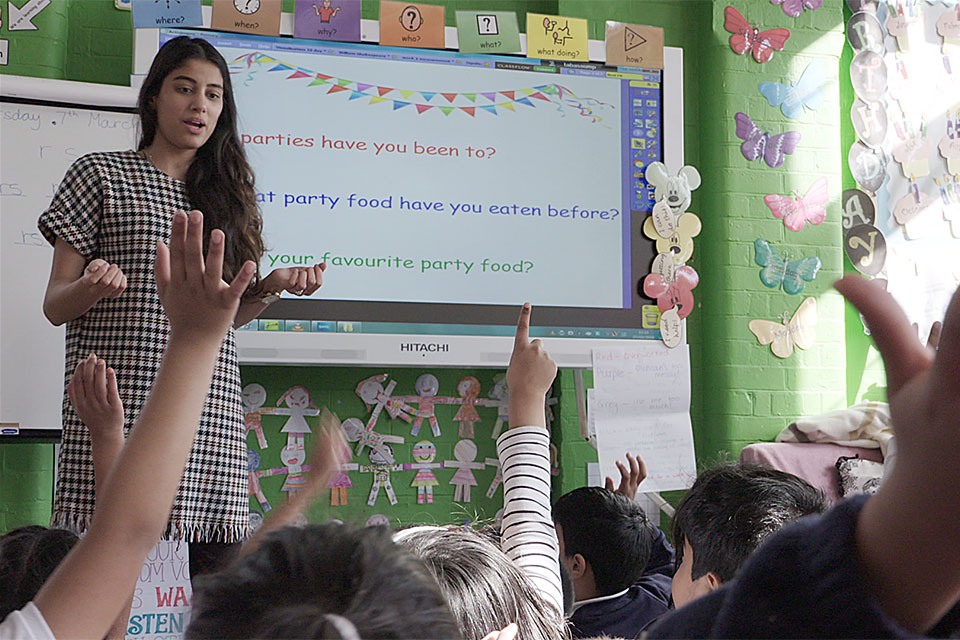Thousands of pupils across England are set to benefit from a £2 million investment to drive high and rising standards in reading and writing, building on the Education Secretary’s plan for a new era of school standards.
In her speech to the Centre of Social Justice (Monday 03 February), the Education Secretary outlined how the success of phonics delivered for millions of children but now was the time to build on this work with a new focus on reading and writing.
A third of children leave primary school without fundamental reading, writing and maths skills, this increases to over half for disadvantaged pupils.
There also continues to be a decline in children and young people reading for pleasure with the number of children aged 8-18 who enjoy reading in their spare time reduced by a third since 2019. Reading for pleasure has been associated not only with increases in reading attainment but also with writing ability, text comprehension, grammar and breadth of vocabulary.
Building on the success of phonics, teachers will receive additional training to help children progress from the early stages of phonics in reception and year 1 through to reading fluently by the time they leave primary school. This will be delivered through the English Hubs programme, a school-to-school improvement programme to drive up standards.
In secondary school, teachers will be offered new training and resources this year to help them support readers at all levels, and next year the Department will commission further training that will be focused specifically on struggling readers in secondary school who are at risk of falling behind.
As part of the £2 million investment, £1 million will be available for secondary schools with the greatest need to apply for, to support them to purchase reading programmes and other resources to support struggling readers.
A strong foundation in reading and writing is crucial for children to achieve and thrive, enabling them to not only benefit from the rest of the curriculum, but also help them develop a love for reading from an early stage.
As part of the government’s drive to improve reading and writing, the department will also publish a writing framework in the summer, that will be a first step to support schools in delivering high quality writing provision across England ensuring all pupils have a strong foundation in writing.
Education Secretary Bridget Phillipson said:
This government will build on the successes of recent decades, raising the bar when it comes to standards and delivering on our Plan for Change, breaking the link between background and success.
Reading and writing are the cornerstones of learning. They hold the keys to the rest of the curriculum, with pupils who struggle to read so often struggling across the board.
So while progress has been made – in particular when it comes to phonics – now is the time to take that work to another level.
That means continuing to drive up quality of teaching, giving our brilliant teachers the tools and resources they need, and extending further support directly to the children and young people who need it most – because no child should leave school without a strong grasp of the basics.
The curriculum review, launched in July, will make sure all pupils benefit from a curriculum that delivers excellent foundations in reading, writing and maths to ensure they can develop the skills needed to succeed in work and life.
The government has also committed to spearheading real-world primary maths teaching through evidence based progammes to ensure every child is given the foundations to develop lifelong numeracy skills.
These reforms follow plans set out by the Education Secretary this week reaffirming her commitment to high and rising standards in schools with an excellent teacher in every classroom, a high-quality curriculum for every school and a core offer of excellence for every parent so that every child can achieve and thrive.



